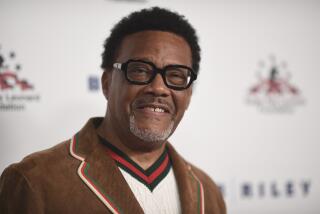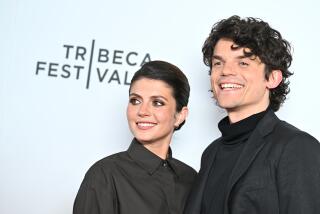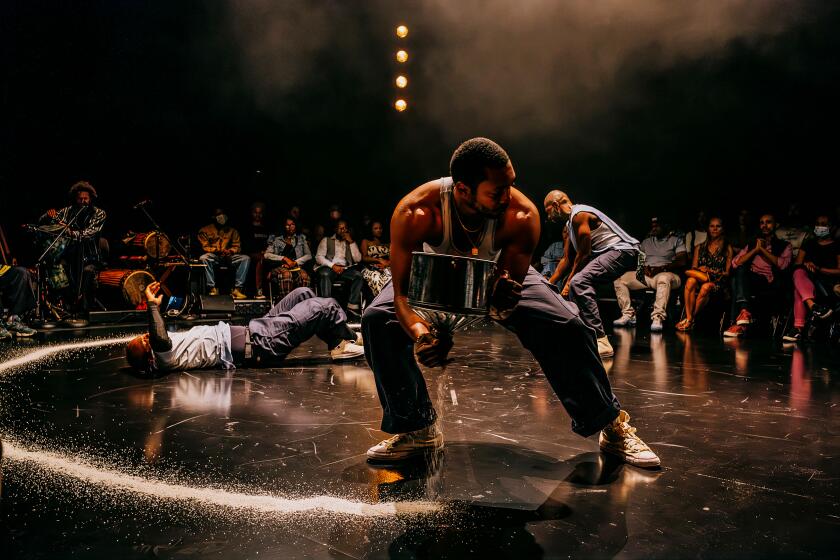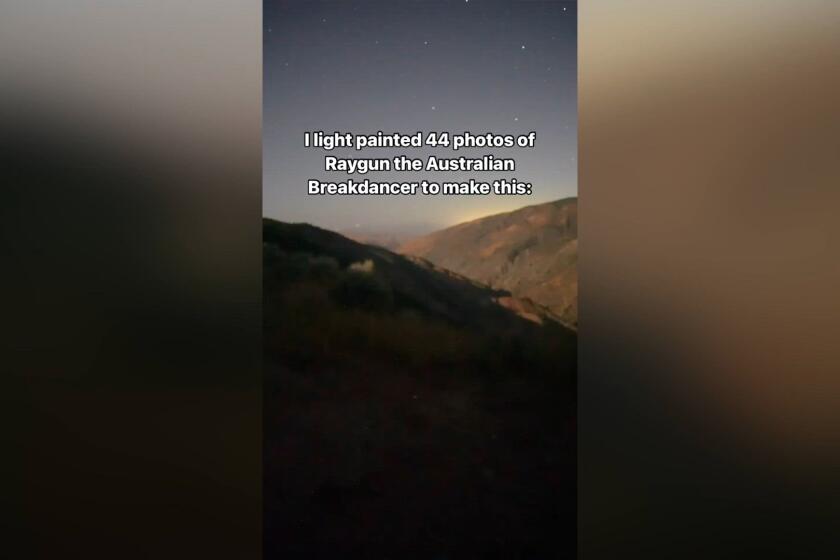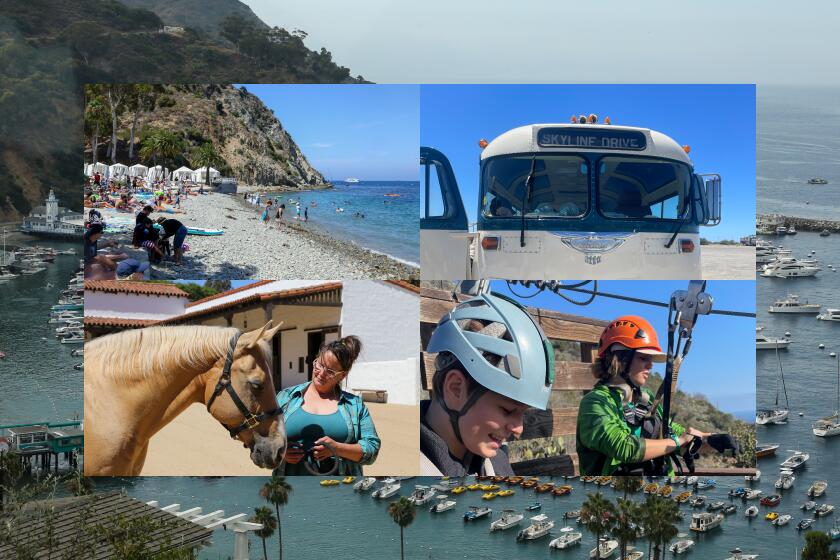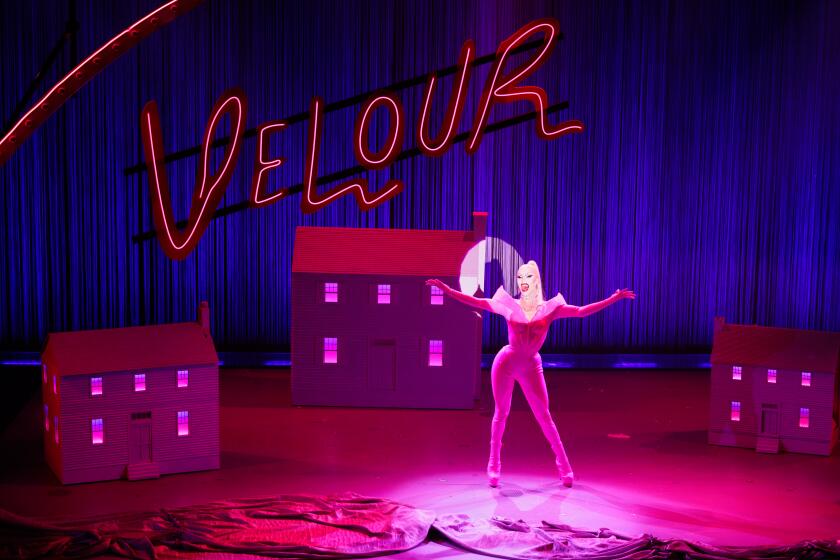American String Quartet: Not Bound by Borders
Call yourself the American String Quartet, and you get some unexpected reactions.
“When we played somewhere in Germany,” said violist Daniel Avshalomov, “someone came up to us afterward and said, ‘So you’re the American Quartet. We thought there were others. . . .’ ”
Everyone’s a comic.
“Then people assumed we specialized in American music, which means contemporary music. We did a lot of that, but we carefully tried to avoid pigeonholing ourselves as specialists. The quartet literature is so big and rich, we didn’t want to be typecast. We wanted to be taken seriously doing Beethoven and Schubert.”
The Americans will be playing no American music, in fact, during their Friday concert at the Orange County Performing Arts Center in Costa Mesa. The music will be by Mozart, Schubert and Bartok.
Actually, their name came about because it was the only one the players could agree on.
“Our discussions were quite lengthy, and that name was the one that drew the least objections,” Avshalomov said. “At that time, we were all students at Juilliard, and we were from the four points of the compass. Now we have two West Coasters and two Easterners. Nothing from the heartland.”
Avshalomov’s current colleagues are violinists Peter Winograd and Laurie Carney and cellist David Geber.
*
Geber, a native Angeleno, and Carney, from New Jersey, go back to the quartet’s beginning, in 1974. Avshalomov, a native of Portland, Ore., and the son of composer Jacob Avshalomov, joined a year later. Winograd, who grew up in Connecticut, joined in 1990.
Avshalomov began his studies at the Juilliard School as a violinist but almost dropped out.
*
“I was thinking about stopping playing altogether. I knew so many good violinists, and there was a seemingly endless number of works I would have to learn and play. I was a little overwhelmed by it.
“My teachers told me, ‘Don’t do anything rash. Why don’t you play viola for a year? It will color your thinking.’ ”
It did.
“The minute I touched a viola, I knew I would not go back to the violin,” he said.
“I remember exactly how my first viola looked. It was bright orange with a checkered chin rest, and it made a sound you could use to warn people that some machinery was moving backward. But I loved it.”
*
Avshalomov doesn’t play the orange viola anymore. In fact, he and his colleagues have recently been recording Mozart quartets on a matched set of Stradivarius instruments housed in the Smithsonian Institution in Washington, D.C. But they will be playing their own instruments here.
“They come out the Smithsonian very infrequently,” he said. “The owner is naturally wary of anyone taking them on tour.”
Their own instruments need no apologies. Winograd plays a violin by Giovanni Maria del Bussetto, made in 1675; Carney, a violin by Carlo Tononi, 1726; Avshalomov, a viola by Andrew Amati in 1568; and Geber, a cello by G.B. Rugeri in 1667.
With this concert, the quartet marks the start of a six-year series of appearances at the center. Over the years, the ensemble will play the six Bartok quartets, the six Mozart viola quartets and “a liberal sprinkling of Schubert and Dvorak quartets.”
Center-sponsored chamber music programs usually take place in the 299-seat Founders Hall, but because that place was already booked for this date, the Americans will play on the stage of Segerstrom Hall. To keep the same ambience, however, the audience will be seated on stage as well.
Violist Brian Dembow and cellist Stephen Erdody, both from the Angeles String Quartet, will join the ensemble for different pieces.
“We’re very fond of the Angeles Quartet,” Avshalomov said. “We admire them as people and as players. We share the same outlook toward playing, which is not as common as you would think. The perceived image of the quartet world is that it’s a great brotherhood and sisterhood, which it is, but real collaboration really doesn’t occur as often you’d think.”
*
To survive 22 years, the quartet has had to learn its own lessons in collaboration.
“We had to learn how to fight, how to dispute and how to disagree productively,” the violist said. “We had to learn that disputes had to do with ideas, not personalities. And we had to learn to willingly abandon the ownership of ideas, which is harder than it sounds.
“You can’t stand up in the middle of a passage and say, ‘You like that phrasing? It was my idea.’ Any good idea belongs to the ensemble.
“So learning to dispute, learning to compromise took time and continues to take time. Now we recognize pretty early that any dispute is going to be a variation of a dispute we’ve had a long time ago, which is not to say it lacks fervor. But nothing is going to ruin the group, our commitment to the group.”
* The American String Quartet will play works by Mozart, Bartok and Schubert on Friday at 8 p.m. at the Orange County Performing Arts Center, 600 Town Center Drive, Costa Mesa. Guests will be violist Brian Dembow and cellist Stephen Erdody of the Los Angeles-based Angeles String Quartet. $10 to $24. (714) 556-2787.
The American String Quartet will play a different program in Los Angeles: Monday at Pierce College in Woodland Hills; Tuesday at Cal State Long Beach, and Jan. 22 at the Wilshire Ebell Theatre. Information for all three concerts: (310 275-9040.
More to Read
The biggest entertainment stories
Get our big stories about Hollywood, film, television, music, arts, culture and more right in your inbox as soon as they publish.
You may occasionally receive promotional content from the Los Angeles Times.
